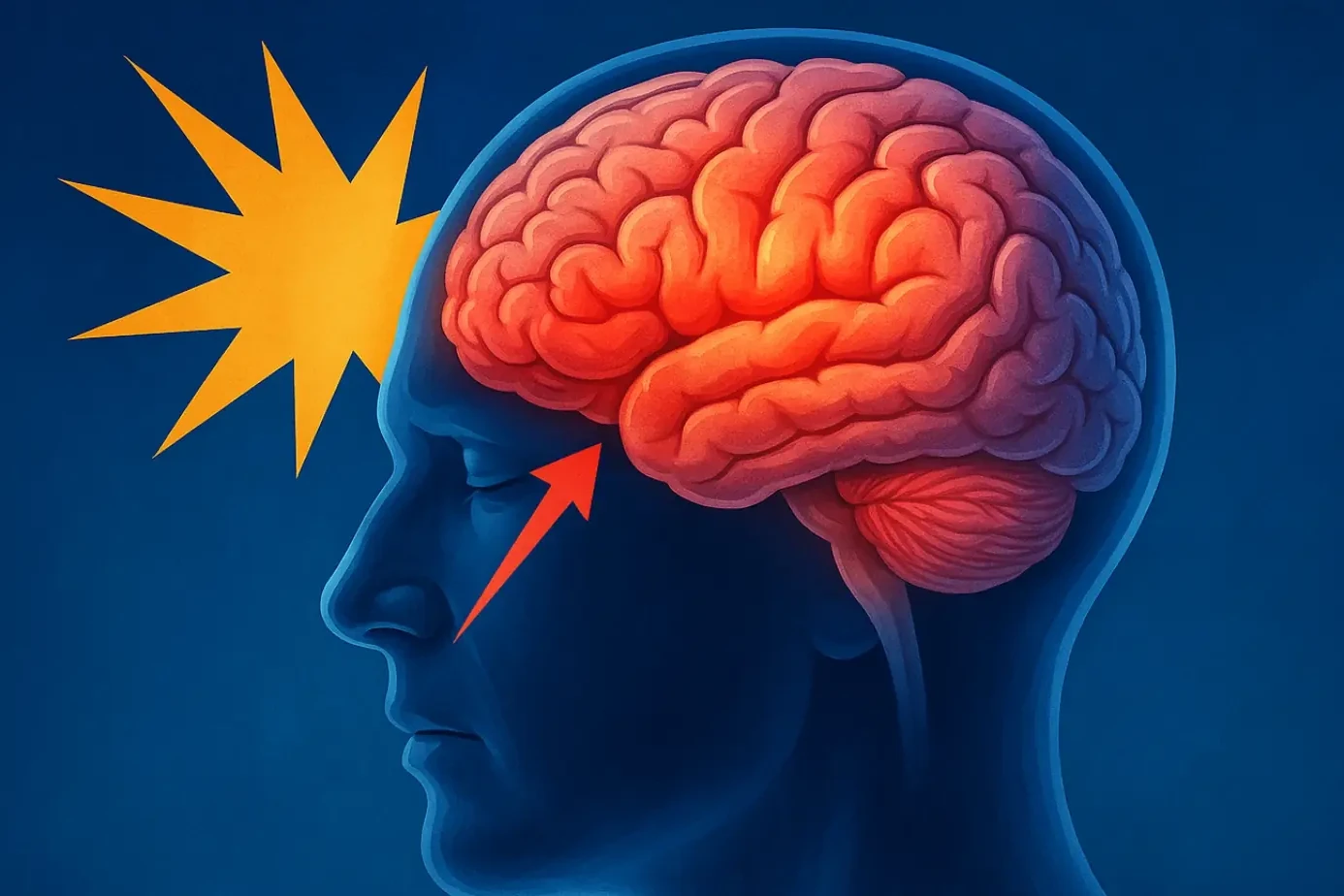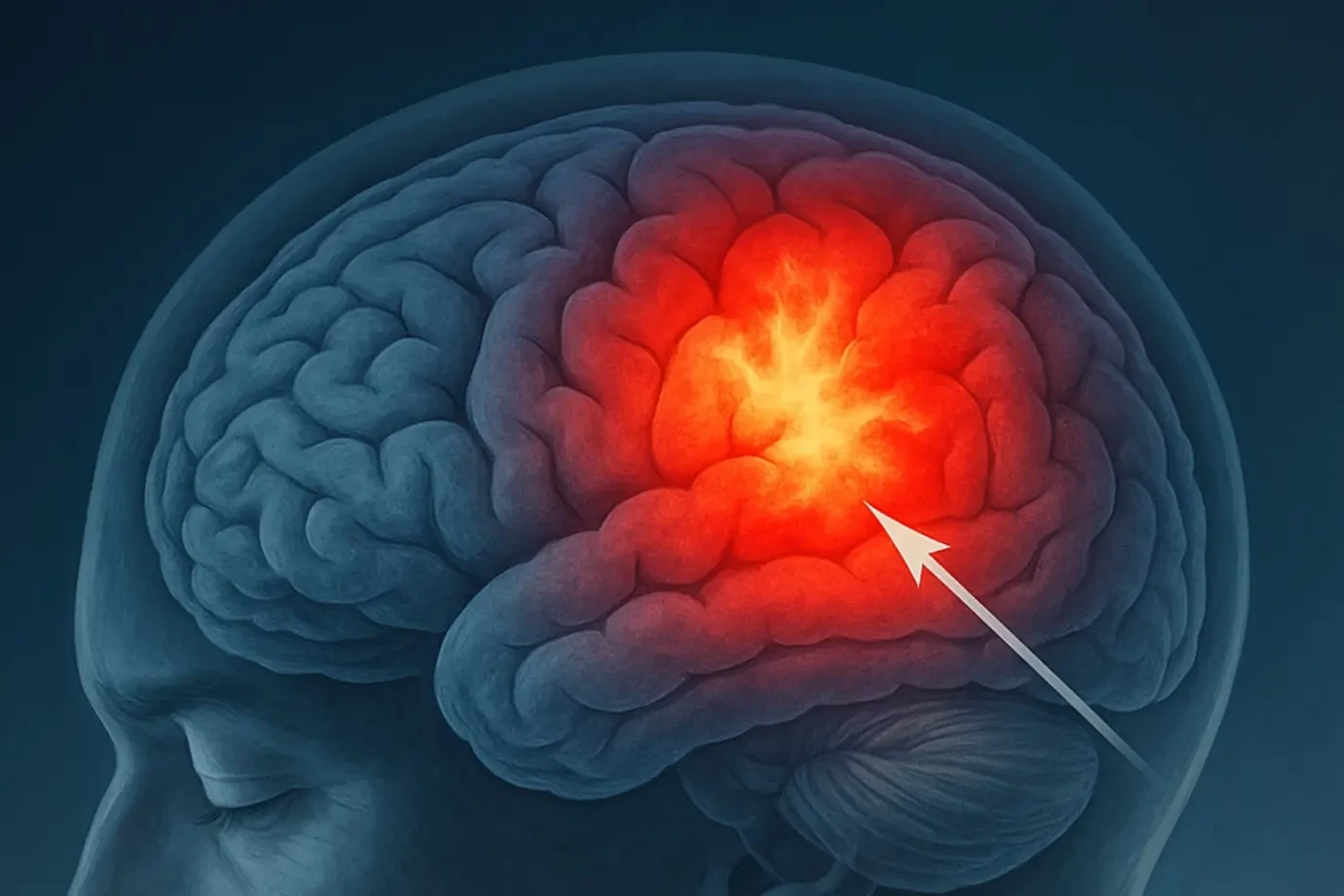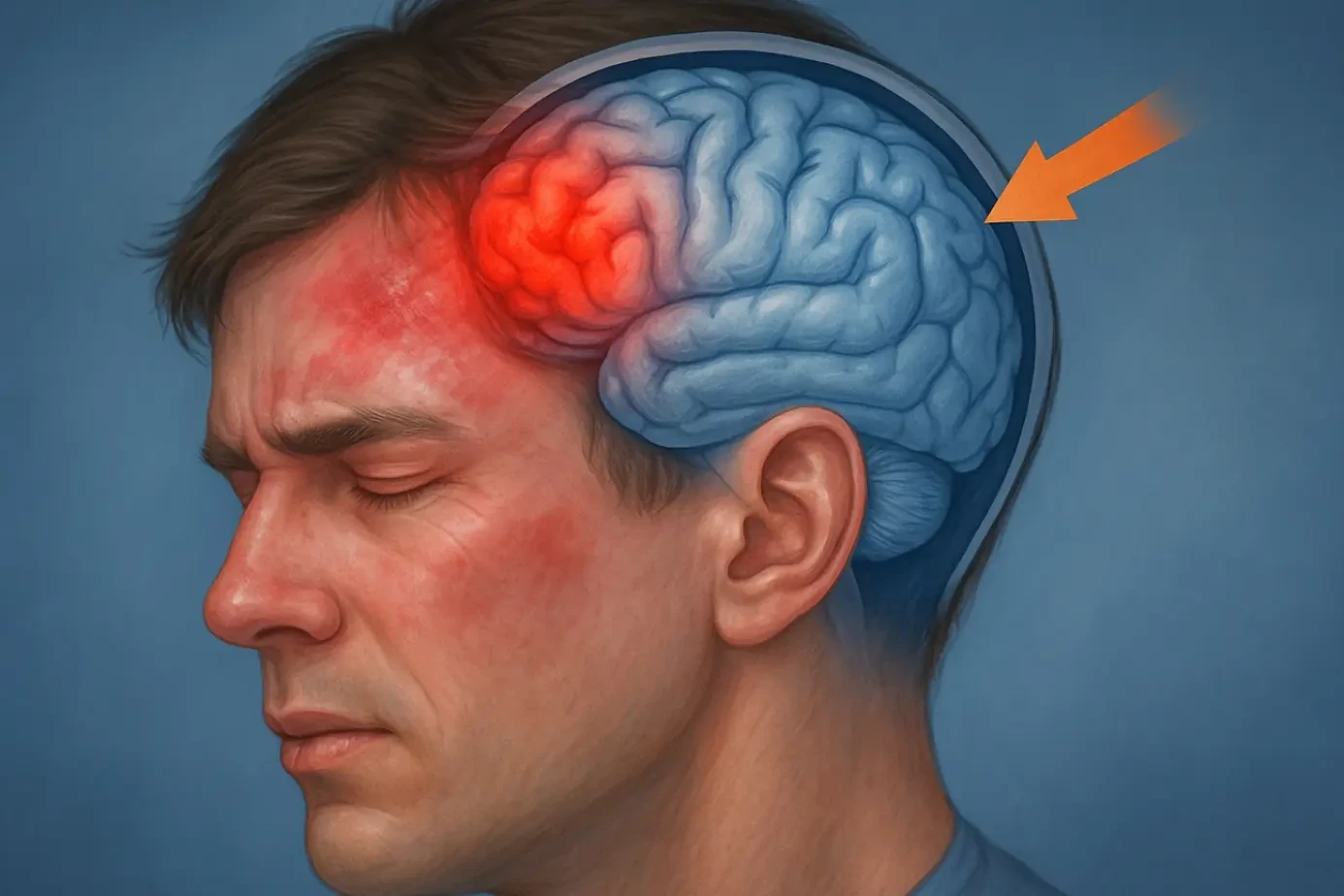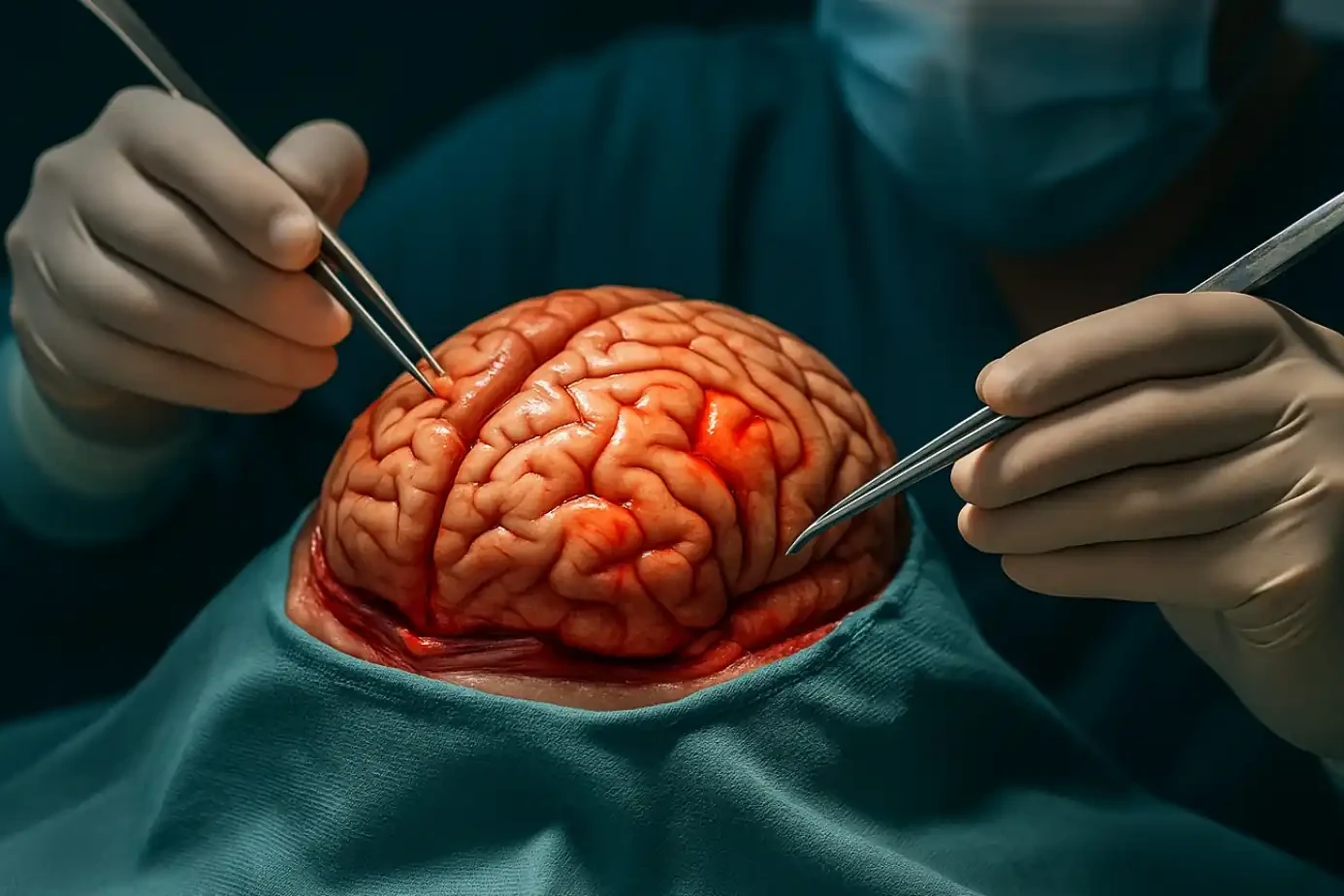Huntington’s disease (HD) is a hereditary disease, which means it’s passed down in families. It makes nerve cells in your brain slowly break and die. This attack affects how you move and can lead to uncontrollable dance-like actions.
So, what is Huntington’s disease really? It’s rare, but when it hits, it changes lives completely.
In this blog, we will help you understand what is Huntington’s disease, what causes it, how it progresses, and how it can be managed. Whether you or a loved one is affected, or you’re simply curious, this guide is for you.
Table of Contents
ToggleWhat is Huntington’s Disease?
What is Huntington’s disease? It is a rare, inherited brain disorder that gradually breaks down nerve cells. It impacts physical movements, emotions, and thinking skills.
- It is caused by a defective gene.
- Symptoms usually start between age 30 to 50.
- It gets worse over time, with no current cure.
To put it simply, it’s like a slow switch-off of the brain’s power, little by little.
Inherited Nature of Huntington’s Disease
If a parent has HD, their child has a 50% chance of getting it. The huntingtin gene makes a protein. But in HD, this protein becomes too long and hard to work with.
The problem starts with extra CAG repeats. These make the huntingtin protein faulty.
Why It’s Called Huntington’s (Origins & History)
The disease is named after Dr. George Huntington, who described it in 1872. His paper, based on observing family cases, was one of the first to suggest it runs in families.
- Dr. Huntington noticed similar symptoms repeating in families.
- The disease was later found to be genetic.
- It became known officially as Huntington’s Disease.
This history gives the condition its name and its early medical roots.
Key Facts You Should Know
Knowing the facts helps you better understand the condition.
| FACT | DETAIL |
|---|---|
| Prevalence | 3 to 7 per 100,000 in people of European ancestry (NIH) |
| Onset | Commonly between 30-50 years of age |
| Inheritance | 50% chance if a parent has it |
| Gene | Mutation in the HTT gene |
These facts make what is Huntington’s disease more than a term, they show how serious and impactful it is.
Causes and Genetic Factors
Over time, this faulty protein gathers in the brain. It harms and kills brain cells. HD comes from a DNA problem called CAG repeats.
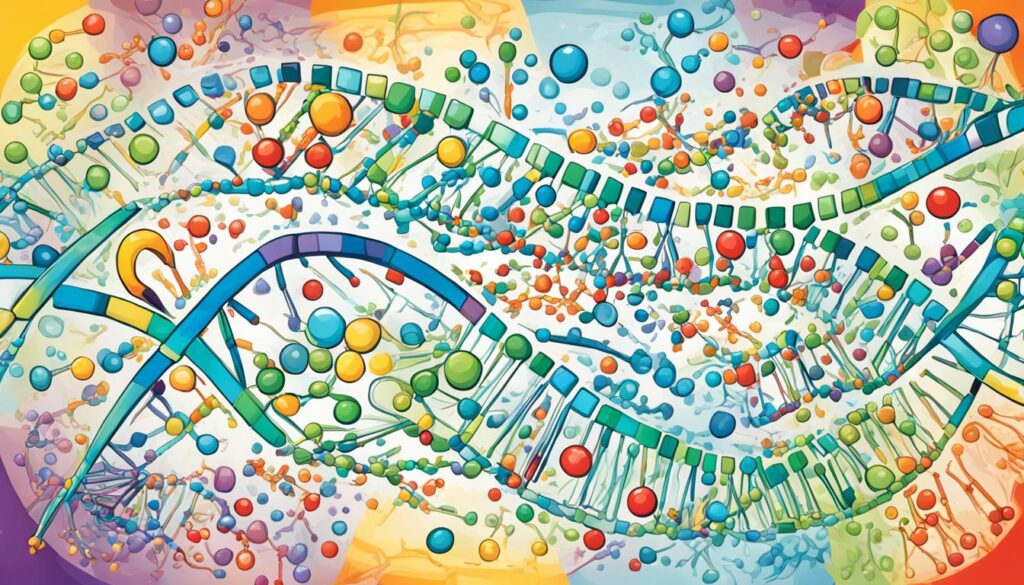
Symptoms: Early Signs to Advanced Stages
Early Symptoms
The early signs can be easy to miss.
- Mood changes: irritability, depression.
- Trouble focusing or remembering things.
- Minor movement issues like twitching or poor balance.
These symptoms often appear years before diagnosis.
Progression of Motor, Cognitive & Psychiatric Symptoms
As what is Huntington’s disease advances, symptoms worsen:
- Motor: Involuntary jerking (chorea), slow movement, stiffness, trouble swallowing.
- Cognitive: Poor judgment, memory loss, confusion.
- Psychiatric: Depression, aggression, anxiety.
Eventually, patients need full-time care.
Juvenile vs Adult-Onset Huntington’s
Juvenile Huntington’s disease is rare but more aggressive.
- Starts before age 20.
- Symptoms: seizures, stiff muscles, difficulty learning.
- Progresses faster than adult type.
Juvenile cases need different care plans and often involve school and family support.
The Role of the HTT Gene and CAG Repeats
The main cause? A faulty gene.
- The HTT gene makes a protein called “huntingtin.”
- A repeated segment of DNA (called CAG repeats) becomes too long.
- Normal range: up to 35 repeats. In HD: 36+ repeats.
- The longer the repeat, the earlier the disease appears.
This gene mutation leads to protein misfolding and brain damage.
Risk Factors & Who’s Most at Risk?
Anyone can get it, but certain people are at higher risk.
- If your parent has HD, you have a 50% risk.
- More common in people of European descent.
- Men and women are equally affected.
Diagnosis and Treatment
Diagnosing Huntington’s disease usually involves different steps. A doctor will look at your medical history and do a physical exam. They will also talk to you and maybe do some tests like an MRI. These tests aim to check your brain and see if there’s Huntington’s disease.
Diagnostic Tests for Huntington’s Disease
Genetic testing is key in finding out if you have this disease. It checks the Huntington gene for certain changes. This test is very accurate and can tell for sure if you have Huntington’s disease.
Managing Symptoms and Care
Unfortunately, huntington’s disease doesn’t have a cure. But there are ways to help with its effects. There are medicines to manage the jerky movements (chorea) and other symptoms. They can make the condition a bit easier to live with.
Therapies and support are also available. Speech and physical therapy can help you keep up your daily activities. These therapies can improve your quality of life. Overall, a good care plan includes both medical and emotional support.
Is There a Cure for Huntington’s?
Sadly, “what is Huntington’s disease” has no cure yet.
- Research is ongoing.
- Some drugs aim to slow the disease.
But managing symptoms is still the best option.
Medications to Manage Symptoms
Medications help with symptoms.
| SYMPTOM | MEDICATION |
| Chorea (jerky movements) | Tetrabenazine |
| Depression | SSRIs like fluoxetine |
| Irritability | Antipsychotics like olanzapine |
Each person responds differently, so drugs are tailored.
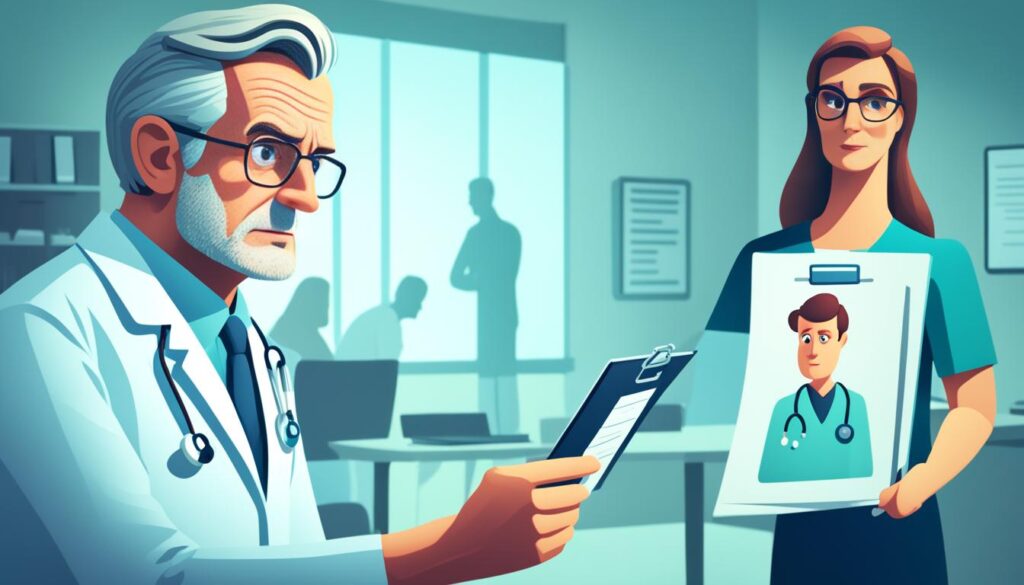
Life Expectancy, Prognosis, and Coping Strategies
How Long Do Patients Live with Huntington’s?
After symptoms begin, life expectancy is usually 10 to 30 years.
- Children with juvenile Huntington’s disease often have shorter life spans.
- Older adults may progress more slowly.
The earlier it starts, the faster it tends to get worse.
Psychological Support for Patients and Families
Mental support is a must.
- Regular counseling sessions help.
- Therapy for families reduces emotional burden.
Being mentally strong helps handle daily stress better.
Coping Mechanisms, Support Groups & Advocacy
Having a support system matters a lot.
- Join support groups online or locally.
- Connect with Huntington’s Disease Society of America (HDSA).
- Get involved in advocacy.
You are not alone in this fight.
Latest Research and Developments
Scientists are learning more about Huntington’s disease (HD) daily. Their work helps us understand the disease better. They find ways to spot the disease early and look for new treatments. Stem cell research is a hot topic in this field right now.
Understanding Disease Mechanisms
Specialists funded by NINDS look closely at what happens in HD at a tiny level. They check how the huntingtin protein signals cells. They also study its shape and its role in making the disease worse. They want to know if the Huntington gene changes much later can cause or worsen the disease. How healthy DNA in the brain tries to fight off the disease also interests them. This might help find new ways to treat HD by finding new drug targets.
Biomarkers and Genetic Factors
The PREDICT-HD team and others are searching for signs and markers of HD. These markers could help predict and check the disease, showing how treatments are working. They also look at how genes can speed up when HD starts, which affects when the disease shows up. This matters for planning care and coming up with new ways to treat HD.
Stem Cell Research
A dedicated group of scientists is looking into how stem cells can help with HD. They use special HD cell lines to do their research. This work is key to finding new treatments. They aim to fix or replace brain cells harmed by HD.
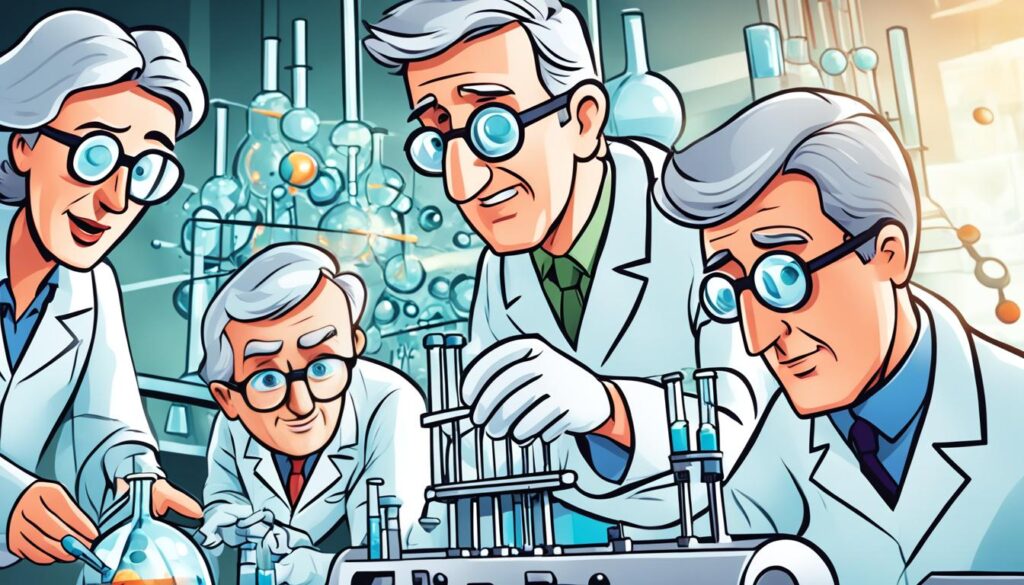
Final Thoughts from Dr. Chugh
If you’re still wondering what is Huntington’s disease, here’s the key: it’s a serious brain condition passed down in families. But with early help, smart care, and a strong support system, life can still be meaningful.
If you or someone you love might have it, don’t wait. Early action makes a big difference.
You can book a consultation directly with Dr. Chandril Chugh, a US-trained neurologist with deep experience in treating Huntington’s and other brain conditions.
FAQ
What is Huntington’s Disease?
Huntington’s disease is a health problem that you can get from your parents. It makes nerve cells in your brain stop working and die. This illness affects how you move on purpose and other parts of your brain.
What are the symptoms of Huntington’s Disease?
People with Huntington’s disease can show many different signs. They might act differently, change moods often, and feel very sad. They could have problems remembering things and not make good choices. Their walk might be unsteady, or they might make movements they can’t control. They could also talk in a way that’s hard to understand, find it tough to swallow, and lose a lot of weight.
How is Huntington’s Disease diagnosed?
To see if someone has Huntington’s disease, doctors use different tests and check their medical past. They do neurological and lab tests, look at the brain with imaging, and do genetic testing. The best way to know for sure is by checking the HD gene for a certain mistake.
What treatments are available for Huntington’s Disease?
Right now, there is no cure for Huntington’s disease. But there are many ways to help with its symptoms. These include using certain drugs, getting therapy to keep moving well, learning how to eat and speak better, and getting the right foods.
What causes Huntington’s Disease?
Huntington’s disease comes from a mistake in how our DNA works. This error happens in a gene called huntingtin. It makes a bad protein that harms the brain.
How does Huntington’s Disease progress?
Huntington’s disease gets worse over time, affecting movement, thinking, and talking. At first, people might have trouble planning or remembering things. They might also feel different. Slowly, talking and eating can get hard, and moving can become stiff and slow.
What is the latest research on Huntington’s Disease?
Scientists are always studying Huntington’s disease. They look at how cells and molecules are involved, find ways to measure the sickness, and explore using stem cells to help.
Source Links
- https://www.ninds.nih.gov/health-information/disorders/huntingtons-disease
- https://www.mayoclinic.org/diseases-conditions/huntingtons-disease/symptoms-causes/syc-20356117
- https://www.hopkinsmedicine.org/health/conditions-and-diseases/huntingtons-disease
- https://hdsa.org/what-is-hd/overview-of-huntingtons-disease/
- https://my.clevelandclinic.org/health/diseases/14369-huntingtons-disease
- https://www.mayoclinic.org/diseases-conditions/huntingtons-disease/diagnosis-treatment/drc-20356122
- https://www.ncbi.nlm.nih.gov/pmc/articles/PMC10674993/
About The Author

Dr Chandril Chugh
This article is medically reviewed by Dr Chandril Chugh, he is committed & compassionate Board-Certified Neurologist, providing expert insights and reliable health information. with a Holistic Approach to Healing.
→ Book a consultation to discover which remedies suit your needs best.
About Author | Instagram | YouTube | Linkedin

